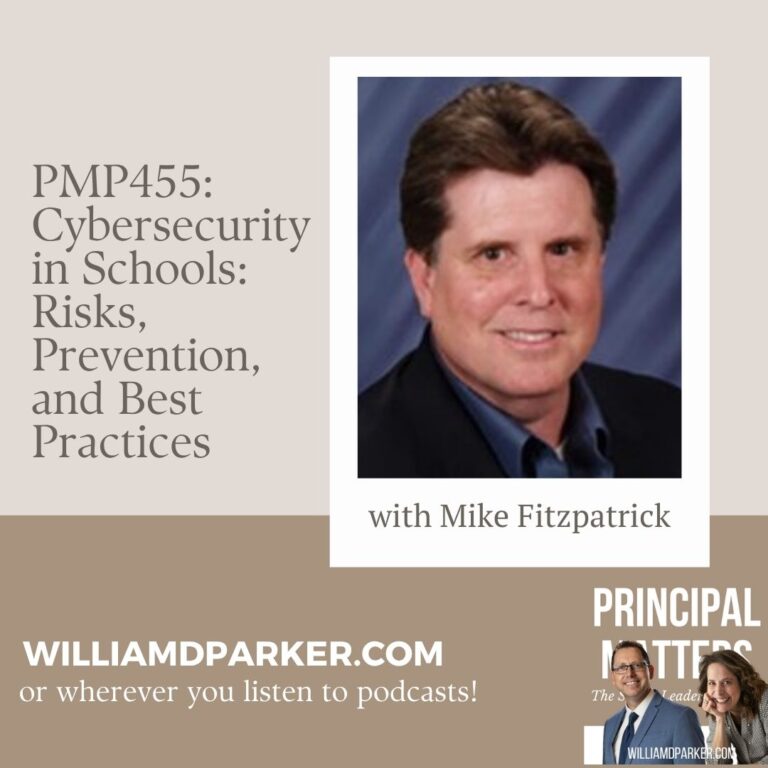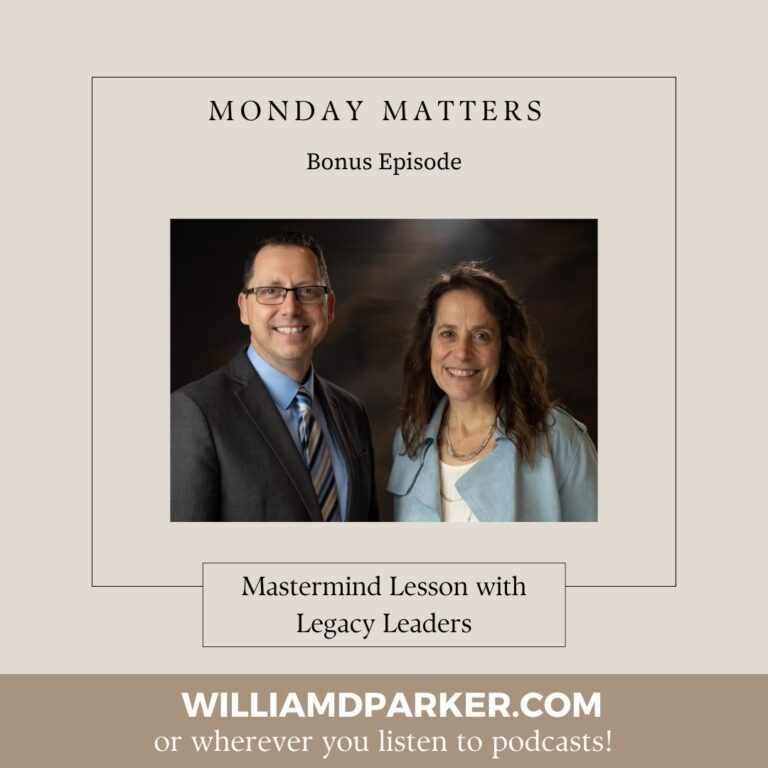Podcast: Play in new window | Download
The other day I was talking to a friend of mine who ran track in high school.

When he was at his fastest, he could run a mile in 4 minutes and 30 seconds. Even though he was naturally fast, he learned to increase his speed through a strong practice his coach required: wearing a parachute during practice.
I was thinking about what it would feel like to run in a parachute. The weight and pull against your shoulders and legs would be almost unbearable. But imagine how fast you would run once the resistance was removed!
Sometimes I think managing finances is like wearing a parachute. If you are running with a lot of financial stress, for instance, you may feel the pull and weight of trying to move ahead with life. If you’ve found a level of financial security, however, you may see money as a parachute that is helping you land safely when needed. For most people, money seems to act both ways.
When my wife and I first finished college, we began married life with a lot of college loan debt. I realize now that I’m older that we were not alone. Just recently, the Federal Reserve announced that outstanding student debt for U.S. residents has now topped $1.5 trillion.
Thankfully, early in our marriage, we discovered some great resources from authors like Ron Blue from ManageYourMoney.com and Dave Ramsey and his Financial Peace resources. With a lot of discipline and planning, we were able to pay down debt, save for emergencies, and make a down payment for our first home.
Through the years, however, we’ve still had demands on our money that have required us to refocus or relearn some of those same lessons. Money seems to be an area of life most people deal with very privately. You may find it uncomfortable to talk about your own finances. However, your willingness (or resistance) to talk about money will influence the way you think and live.
So how does your personal money management influence your leadership? Obviously, when you are responsible for school budgets or managing accounts for others, you must practice strong accountability and responsibility. But in this conversation, I want to focus on how your personal finances — your mindset about managing your resources – influences your leadership.
4 ways your attitude and practice with money matters:
1. Your money management allows you freedom (or lack of freedom) in your career choices.
Early in my early education career, I was talking to a friend about how I was struggling with the leadership and support at my school and was unsure what to do next. I no longer felt like I thrive in the work environment there. My friend patiently listened to my struggles and then he said, “Will, we don’t live in communist China. If there’s a better opportunity for you out there, go for it.”
That simple statement was a wake-up call for me to remember that I had a choice. But during that discussion, I also realized I had the freedom to look at options because of how my wife and I were managing our finances. By living within in our means and saving for future expenses, we had the freedom and perspective to look at options without fear.
Some people worry about their employers knowing they are considering other options for fear they may lose their jobs. Thankfully, I’ve not worked in environments like that. But even if I did, I still believe that a healthy practice in money management allows for a more peaceful perspective when making important career choices.
For example, the other day I was listening to a story of a man who lives in an economically depressed area of his city. He gave up a job making $9 an hour in order to work for a better company making $14 an hour. The catch, however, was his new commute to work. His better paying job was 15 miles across town. Because he was limited to using public transportation, his commute required 3 hours of travel each morning and 3 hours home after work. In essence, he was giving up six hours of travel time and sleeping only 4 hours a night to make an additional $32 a day,
I know the situation is probably more complicated than I understand, but here is my point: Sometimes, it is possible to be unnecessarily burdened by your financial decisions when you are so overwhelmed by circumstances that keep you from seeing other options. For instance, if the same man could have found part-time work at $9 for 4 more hours a day, he could have made an additional $36 a day, stayed closer to home and gotten more sleep.
Obviously, you did not choose the career of an educator to become wealthy. But when you practice good management of the resources you have, you often have more flexibility and choice when considering the options before you.
2. Your money management helps you set goals for your time and energy.
Five years ago, I was looking at my growing family and anticipating my oldest daughter preparing for college. Looking ahead, I was aware that I needed to increase my income potential. Unlike many of my peers, I was not interested in becoming a school superintendent (no offense to all my friends who are). I loved being a school principal and I wanted to expand opportunities within that field.
When I looked at the financial landscape, I had a choice. I could despair, or I could invest my time toward expanding opportunities. I love to write and wanted to share stories and lessons with other school leaders. So I began dedicating time — usually in the evenings or very early mornings – to writing at least 500 words per week to share as a blog post. Five years later, I have two books in print and a weekly podcast. And this commitment of time has also influenced my career opportunities.
When I began that process five years ago, the economy was in recession, unemployment was at an all-time high, and the prospects of seeing a raise in my school salary was unsure for the short-term. But I chose to ignore all of those obstacles by realizing I still had control over my time and energy.
Now I realize you may face bigger challenges than others because of your own unique economic, political, or social dynamics. But having a strong plan for managing your resources helps you have a clearer perspective on your own time investments.
3. Your money management reminds you that resources are temporary, and managing them is a gift.
No one is really self-sufficient. Most successful or wealthy individuals have exchanged their time and effort for the rewards they enjoy. That how money works. You create something of value while others are willing to exchange something valuable for it. If your work creates value for others, you earn an income. But even the most successful person will eventually lose the ability to produce. Ultimately, your money and possessions are only temporary. As one of my old country music favorites, Ricky Skaggs, would say, “You can’t take it with you when you go.”
Years ago, I heard a story about a preacher who was asked to lunch by a wealthy landowner. During their meal, the landowner expressed his disagreement with a sermon he had heard from the preacher about God owning everything. The preacher politely listened but did not argue back. After lunch, the man took the preacher on a long drive across acres of pastures and fields.
At the top of a hill overlooking his property, the man said, “I’ve worked my whole life to acquire this land. Now how can you tell me I don’t really own all this?”
The preacher was silent for a while, and then he finally replied, “Can you ask me that question again in a hundred years?”
Whatever resources you have, you are really only the manager of possessions someone else will own when you’re gone. We all face the danger of turning our possessions into symbols of self-identity or self-worth. But when you realize what you have is only temporary, you are able to appreciate it more and realize its value is in how it is used, not how much it is worth.
That same mindset helps whether you are talking about income, relationships, talents, or knowledge. If you keep those resources to yourself, you are missing out on the greatest value of having them. And that leads to the last point…
4. Your money management gives you context for your work and your calling.
Finally, it is important to remember the reason why we work and manage resources. Ultimately, our resources are put to best use when helping others. And generosity is not just measured by how you give your money – although it is a good indicator of your priorities, you have lots of ways you can express generosity.
A few years ago, my family faced a number of emergencies that became bigger burdens than we could manage on our own. During that time, my son Jack was diagnosed with a rare disease that hospitalized him for two weeks. As he was recovering, it was also Halloween, and we planned to miss out on the festivities that year.
Unknown to us, a friend of ours posted a message on Facebook Halloween morning that said, “There’s a boy at St. Francis Hospital, room 329, who needs to celebrate Halloween today. Don’t let him be disappointed.” Soon friends as well as people we had never met began to stop by Jack’s room with gifts—candy, video games, and other treats. Jack was so excited to see each person. By the end of the day, every table, counter and window sill in the room was covered with bags of goodies.
My family still talks about that Halloween Day. We were facing some difficulties beyond our control, but the generosity of friends and strangers surrounded us with emotional support.
In addition, we were facing financial burdens for hospital expenses not covered by insurance. In conversations with the hospital staff, they encouraged us to submit a letter requesting help. A few weeks later, the hospital sent us a letter back explaining they had forgiven the remaining bills for Jack’s stay.
It is humbling when you face times where your own resources or abilities do not provide everything you need. Most people are fiercely independent. But when you are the recipient of generosity, it is not only humbling but also it is a good reminder of the support you can bring others when they have needs.
In the end, the greatest benefit of wisely managing your resources is the ability to help others when they go through difficult times.
Let’s Wrap This Up
There is another story about parachutes that I love to tell. One day at my school office, I found a handwritten card in my mailbox at school from a senior student telling me thank you for “packing her parachute.” I was curious and then saw inside the envelope, she had placed a cut-out piece of parachute cloth and a folded-up copy of this excerpt by a man named Charlie Plumb that read as follows:
Packing Parachutes by Charlie Plumb
“Recently, I was sitting in a restaurant in Kansas City. A man about two tables away kept looking at me. I didn’t recognize him. A few minutes into our meal he stood up and walked over to my table, looked down at me, pointed his finger in my face and said, ‘You’re Captain Plumb.’
I looked up and I said, ‘Yes sir, I’m Captain Plumb.’He said, ‘You flew jet fighters in Vietnam. You were on the aircraft carrier Kitty Hawk. You were shot down. You parachuted into enemy hands and spent six years as a prisoner of war.’
I said, ‘How in the world did you know all that?’He replied, ‘Because, I packed your parachute.’
I was speechless. I staggered to my feet and held out a very grateful hand of thanks. This guy came up with just the proper words. He grabbed my hand, he pumped my arm and said, ‘I guess it worked.’
‘Yes sir, indeed it did’, I said, ‘and I must tell you I’ve said a lot of prayers of thanks for your nimble fingers, but I never thought I’d have the opportunity to express my gratitude in person.’
He said, ‘Were all the panels there?’‘Well sir, I must shoot straight with you,’ I said, ‘of the eighteen panels that were supposed to be in that parachute, I had fifteen good ones. Three were torn, but it wasn’t your fault, it was mine. I jumped out of that jet fighter at a high rate of speed, close to the ground. That’s what tore the panels in the chute. It wasn’t the way you packed it.’
‘Let me ask you a question,’ I said, ‘do you keep track of all the parachutes you pack?’
‘No’ he responded, ‘it’s enough gratification for me just to know that I’ve served.’
I didn’t get much sleep that night. I kept thinking about that man. I kept wondering what he might have looked like in a Navy uniform – a Dixie cup hat, a bib in the back and bell bottom trousers. I wondered how many times I might have passed him on board the Kitty Hawk.I wondered how many times I might have seen him and not even said ‘good morning’, ‘how are you’, or anything because, you see, I was a fighter pilot and he was just a sailor. How many hours did he spend on that long wooden table in the bowels of that ship weaving the shrouds and folding the silks of those chutes? I could have cared less…until one day my parachute came along and he packed it for me.
So the philosophical question here is this: How’s your parachute packing coming along? Who looks to you for strength in times of need? And perhaps, more importantly, who are the special people in your life who provide you the encouragement you need when the chips are down? Perhaps it’s time right now to give those people a call and thank them for packing your chute” (Plumb, C. www.charlieplumb.com).
In case you haven’t been reminded lately, thank you for packing parachutes in the ways you serve your school community!
And as you look at the way you manage your time and money, remember your resources are simply commodities you’ve been given. When you manage them well, you will have more freedom in your choices, more intentionality with your time, more perspective on your work, and more generosity toward others. As a result, you will keep packing parachutes for others and the ability to recognize when others are packing yours.
Now It’s Your Turn
What is one way you can rethink the way money management influences your time and energy? What is one small way you can use your resources to brighten someone’s day or lighten their load? When is the last time you’ve paused to thank someone for the ways they’ve given you their time or help?
Sign-Up For Free Updates and Ebook
When you enter your email address below, you will automatically receive my newest posts and a free Ebook, 8 Hats: Essential Roles for School Leaders. Let’s keep learning together!
Subscribe for free weekly updates and receive free e-book!
(function($) {window.fnames = new Array(); window.ftypes = new Array();fnames[0]=’EMAIL’;ftypes[0]=’email’;fnames[1]=’FNAME’;ftypes[1]=’text’;fnames[2]=’LNAME’;ftypes[2]=’text’;}(jQuery));var $mcj = jQuery.noConflict(true);
Principal Matters–The Book!

School leaders are very busy, so each of the twenty-four chapters is designed as a quick-read and followed with take-action questions for follow-up or reflection. If you want practical ideas on understanding your purpose, managing school teams, dealing with challenges, and leading with courage, action, motivation, and teamwork, go HERE to pick up a copy for you or your team.
Messaging Matters

Harness the power of messaging to create a culture of acknowledgment, respect, and celebration. Written specially for leaders, this title is divided into three parts, helping readers to maximize their role as chief communicators with students, teachers, and parents and community. Each chapter includes suggestions for using digital tools to enhance messaging and ends with reflection questions and practical next steps.


